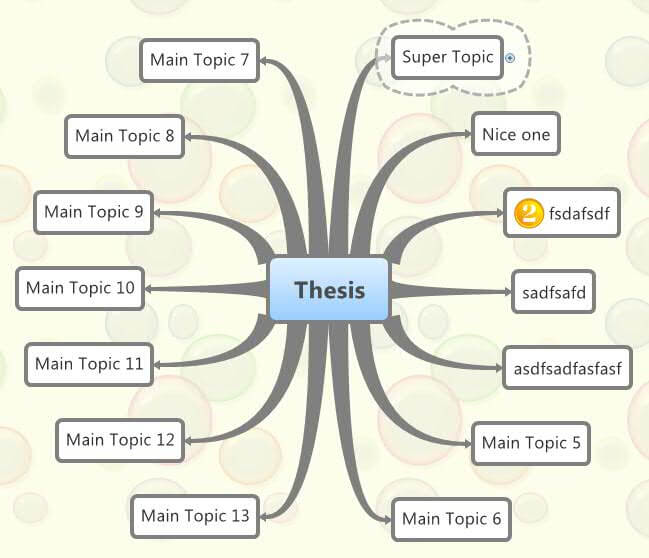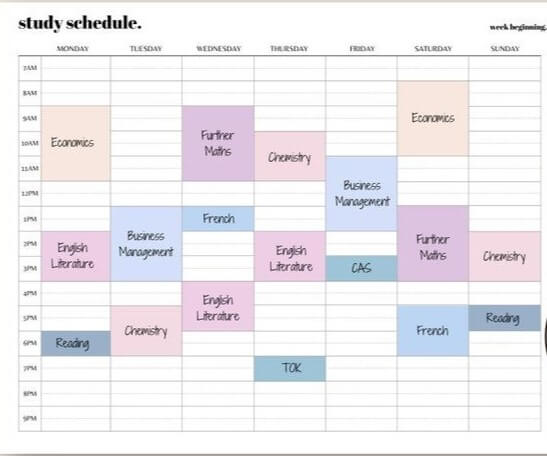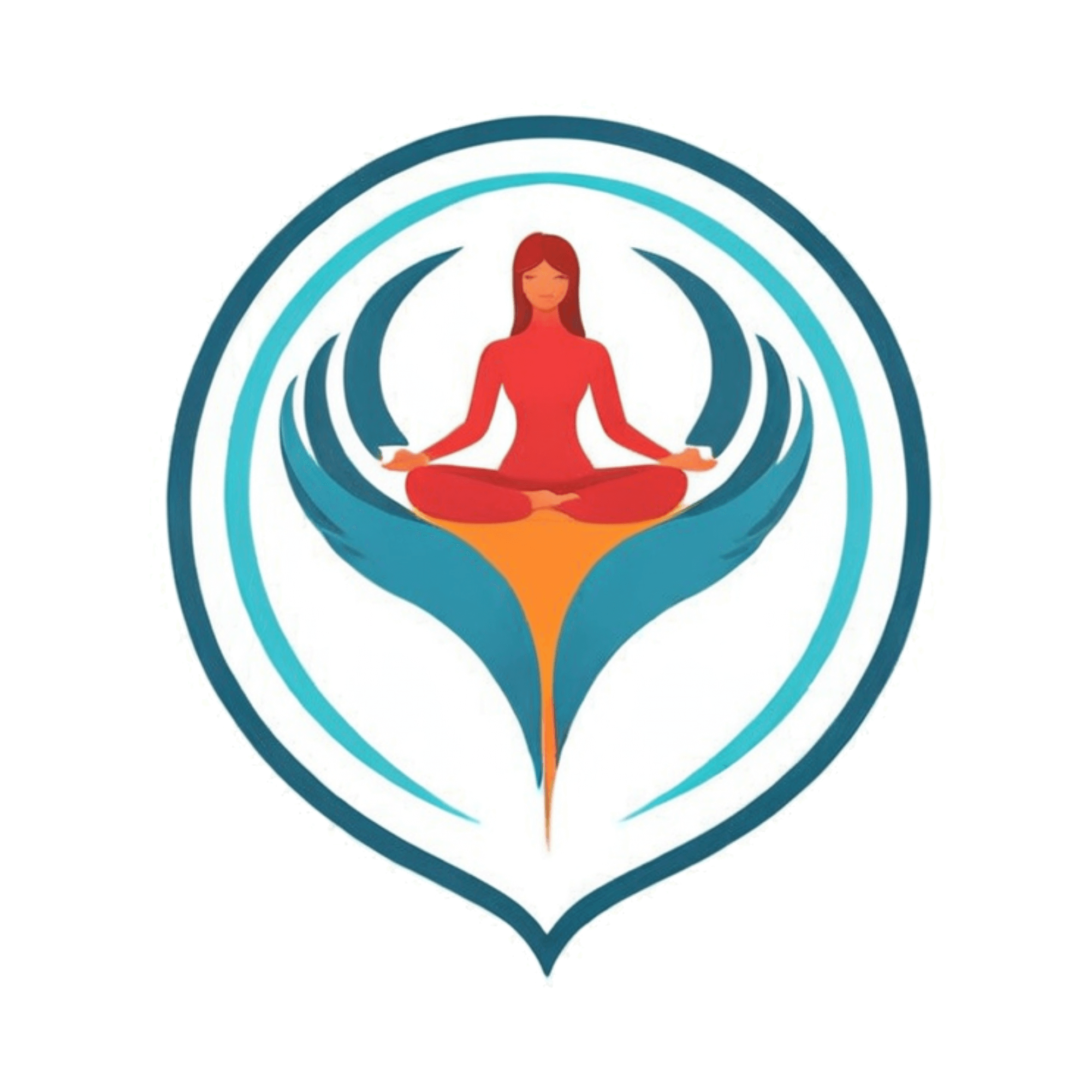Viva stress is a common challenge faced by students and researchers during their viva voce examinations. This article provides valuable insights and strategies to manage viva stress effectively, helping you perform better and maintain your well-being. Whether you’re preparing for your viva or supporting someone who is, this guide offers practical tips and resources to navigate this stressful period successfully.
You may read to know the importance of addressing viva stress here.
Summary
Summary of Key Points
- Effective Strategies: We’ve discussed various strategies for managing stress, including mindfulness techniques, physical activities, and professional support services.
- Resources: A range of resources such as apps, books, and online communities were highlighted to help you manage stress effectively.
Recap of Strategies and Resources
- Mindfulness Techniques: Practices like meditation and deep breathing can significantly reduce stress levels.
- Physical Activities: Regular exercise, yoga, and even simple walks can help alleviate stress.
- Professional Support: Seeking help from therapists or counselors can provide personalized strategies and support.
Encouragement and Final Tips for Managing Viva Stress
- Stay Positive: Remember that managing stress is a journey, and it’s okay to seek help.
- Consistency is Key: Regularly practicing the strategies discussed can lead to long-term benefits.
- Stay Connected: Engage with supportive communities and loved ones to share your experiences and gain encouragement.

What is Viva Stress?
Viva stress refers to the anxiety and pressure experienced by students and researchers when preparing for and undergoing a viva voce examination. A viva voce, often simply called a “viva,” is an oral examination where candidates defend their thesis or dissertation in front of a panel of examiners. This type of exam is common in higher education, particularly for PhD students.
Why is Managing Viva Stress Important?
Managing viva stress is crucial for several reasons:
- Performance: High levels of stress can negatively impact your performance during the viva. Anxiety can lead to difficulties in articulating your thoughts clearly, recalling information, and responding to questions effectively.
- Health: Chronic stress can have adverse effects on both physical and mental health. It can lead to symptoms such as headaches, insomnia, and even more severe conditions like depression and anxiety disorders.
- Confidence: Successfully managing stress can boost your confidence, helping you to present your research more effectively and engage positively with the examiners.
Understanding the Viva Voce Examination
A viva voce examination typically involves the following components:
- Presentation: The candidate may be required to give a brief presentation summarizing their research.
- Questioning: Examiners will ask questions to probe the candidate’s understanding of their research, its methodology, and its implications.
- Discussion: There may be a broader discussion about the field of study, related literature, and future research directions.
By understanding what viva stress is and why it is important to manage it, you can take proactive steps to prepare effectively and reduce anxiety. This will not only improve your performance during the viva but also contribute to your overall well-being.
Understanding Viva Stress
Common Causes of Viva Stress

High Stakes of the Exam
The viva voce examination is often the final hurdle in obtaining a degree, particularly for PhD students. The outcome can significantly impact your academic and professional future. This high-stakes nature of the exam can create immense pressure, as students feel that years of hard work boil down to this one critical moment. The fear of not meeting expectations or failing can be overwhelming.
Fear of Public Speaking
Public speaking is a common source of anxiety for many people. During a viva, candidates must present their research and answer questions in front of a panel of examiners. This can be particularly daunting if you are not comfortable speaking in public or if you fear being judged. The formal setting and the presence of experts can exacerbate this fear, making it difficult to communicate effectively.


Pressure to Perform Well
There is often a significant amount of pressure to perform well during the viva. This pressure can come from various sources, including personal expectations, academic advisors, peers, and family. The desire to impress the examiners and validate your research can lead to heightened stress levels. Additionally, the competitive nature of academia can add to the pressure, as students strive to stand out and achieve recognition.
Symptoms of Viva Stress
Physical Symptoms
Viva stress can manifest in various physical symptoms, which can affect your overall well-being and performance during the exam. Common physical symptoms include:
- Sweating: Excessive sweating, particularly in the palms and forehead, is a common response to stress.
- Rapid Heartbeat: An increased heart rate can occur as your body responds to anxiety.
- Trembling: Shaking hands or a trembling voice can be signs of nervousness.
- Headaches: Tension headaches are often a result of prolonged stress.
- Stomach Issues: Nausea, stomach cramps, or digestive problems can arise due to anxiety.
Emotional Symptoms
The emotional impact of viva stress can be just as significant as the physical symptoms. Emotional symptoms can include:
- Anxiety: Persistent worry and fear about the outcome of the viva.
- Fear: Intense fear of failure or not meeting expectations.
- Irritability: Increased irritability and frustration, often due to the pressure and stress.
- Difficulty Concentrating: Trouble focusing on preparation or during the exam itself.
- Low Confidence: Doubts about your abilities and the quality of your research.
Cognitive Symptoms
Viva stress can significantly impact cognitive functioning, leading to various symptoms that affect a student’s ability to think clearly and perform well during their examination. Here are some common cognitive symptoms associated with viva stress:
- Forgetfulness: Stress can impair memory, making it difficult to recall important information during the viva. This forgetfulness can lead to absent-minded mistakes and difficulty remembering key points.
- Difficulty Concentrating: High levels of stress can make it challenging to focus on tasks. Students may find their attention wandering, even during important moments, which can hinder their ability to respond effectively to questions.
- Rigid Thinking: Under stress, students may exhibit more rigid thinking patterns, relying on habitual responses rather than flexible, creative problem-solving. This can limit their ability to think on their feet and adapt to unexpected questions.
- Constant Worrying: Stress often leads to persistent worrying, where students continuously think about potential negative outcomes. This constant worry can distract from the task at hand and exacerbate feelings of anxiety.
- Poor Judgment: Cognitive stress can impair decision-making abilities, leading to impulsive choices or difficulty evaluating options logically. This can affect how students handle challenging questions or unexpected situations during the viva.
- Racing Thoughts: Students experiencing high stress may have racing thoughts, where their mind jumps rapidly from one idea to another. This can make it hard to organize thoughts coherently and articulate responses clearly2.
By understanding the causes and symptoms of viva stress, you can take proactive steps to manage it effectively. Recognizing these factors allows you to implement strategies that can alleviate stress and improve your performance during the viva.
Strategies to Manage Viva Stress
Preparation Tips
Effective Study Techniques
Effective preparation is key to managing viva stress. Here are some study techniques to help you prepare thoroughly:
- Active Learning: Engage with the material actively by summarizing key points, creating mind maps, and teaching the content to someone else. This helps reinforce your understanding and retention.
- Practice Questions: Anticipate potential questions and practice answering them. This can help you become more comfortable with the types of questions you might face.
- Review Sessions: Regularly review your notes and research findings. Break down your study sessions into manageable chunks and focus on different sections of your thesis each time.

For more effective study techniques, read here.
Mock Viva Sessions
Simulating the viva experience through mock sessions can significantly reduce anxiety and improve your performance:
- Peer Sessions: Arrange mock viva sessions with peers or mentors who can ask you challenging questions. This helps you practice articulating your thoughts and responding under pressure.
- Feedback: After each mock session, seek feedback on your performance. Identify areas for improvement and work on them before the actual viva.

Click here to read more about mock viva sessions and their benefits.
Time Management Strategies
Effective time management can help you balance preparation with other responsibilities, reducing stress:
- Create a Schedule: Develop a study schedule that allocates specific times for reviewing different sections of your thesis. Include breaks to avoid burnout.
- Set Priorities: Identify the most critical areas that need attention and prioritize them in your study plan. Focus on high-impact tasks first.
- Avoid Procrastination: Break tasks into smaller, manageable steps to make them less daunting. Use techniques like the Pomodoro Technique to maintain focus and productivity.

Some related articles you should read:
- What to expect on the day of the viva.
- Tips for staying calm and focused during the viva.
- Guide to effective communication techniques.
Mental Health Techniques
Mindfulness and Meditation
Mindfulness and meditation can help calm your mind and reduce anxiety:
- Mindfulness Practices: Engage in mindfulness exercises such as body scans, mindful breathing, and mindful walking. These practices help you stay present and reduce stress.
- Meditation: Set aside time each day for meditation. Even a few minutes of meditation can help clear your mind and improve focus.

For more mindfulness and meditation practices, read here.
Breathing Exercises
Breathing exercises are simple yet effective techniques to manage stress:
- Deep Breathing: Practice deep breathing exercises, such as inhaling deeply through your nose, holding your breath for a few seconds, and exhaling slowly through your mouth. This can help reduce anxiety and promote relaxation.
- Box Breathing: Try box breathing, which involves inhaling for four counts, holding the breath for four counts, exhaling for four counts, and holding again for four counts. Repeat this cycle several times.

You may want to know other stress management techniques: physical activities for stress relief.
Cognitive-Behavioral Techniques
Cognitive-behavioral techniques (CBT) can help you manage negative thoughts and emotions:
- Identify Negative Thoughts: Recognize and challenge negative thoughts that contribute to stress. Replace them with positive, realistic affirmations.
- Behavioral Strategies: Use behavioral strategies such as setting achievable goals, rewarding yourself for progress, and practicing relaxation techniques.

Read here to know more about cognitive-behavioral techniques.
By implementing these preparation tips and mental health techniques, you can effectively manage viva stress and improve your performance during the examination. Remember, the key is to prepare thoroughly, practice regularly, and take care of your mental well-being.
Post-Viva Stress Management
Dealing with Post-Viva Stress Disorder
Symptoms and Treatment Options
Post-Viva Stress Disorder (PVSD) can manifest similarly to post-traumatic stress disorder (PTSD), particularly if the viva experience was highly stressful or traumatic. Recognizing the symptoms and seeking appropriate treatment is crucial for recovery.
Symptoms of Post-Viva Stress Disorder
PVSD symptoms can be grouped into four main categories:
- Intrusive Memories
- Flashbacks: Reliving the viva experience as if it were happening again.
- Nightmares: Disturbing dreams about the viva.
- Distressing Memories: Unwanted, recurring memories of the viva.
- Avoidance
- Avoiding Reminders: Steering clear of places, people, or activities that remind you of the viva.
- Suppressing Thoughts: Trying not to think or talk about the viva.
- Negative Changes in Thinking and Mood
- Negative Thoughts: Persistent negative beliefs about oneself or the world.
- Emotional Numbness: Difficulty experiencing positive emotions.
- Detachment: Feeling isolated from friends and family.
- Changes in Physical and Emotional Reactions
- Hypervigilance: Being easily startled or always on guard.
- Irritability: Experiencing angry outbursts or aggressive behavior.
- Sleep Disturbances: Trouble sleeping or staying asleep.
Treatment Options
Effective treatment for PVSD often involves a combination of psychotherapy and medication:
- Psychotherapy
- Cognitive Behavioral Therapy (CBT): Helps identify and change negative thought patterns and behaviors.
- Exposure Therapy: Gradually exposes individuals to viva-related memories in a controlled way to reduce fear and anxiety.
- Eye Movement Desensitization and Reprocessing (EMDR): Uses guided eye movements to help process and integrate traumatic memories.
- Medications
- Antidepressants: Can help manage symptoms of depression and anxiety.
- Anti-Anxiety Medications: Used for short-term relief of severe anxiety symptoms.
- Sleep Aids: Prescribed to help with insomnia and other sleep disturbances.

Read these articles for more information:
- Understanding feedback and using it constructively.
- Dealing with outcomes and coping strategies.
- Reflection guide on learning from the viva experience.
Long-Term Stress Management Strategies
Managing stress effectively over the long term is essential for maintaining mental health and preventing the recurrence of PVSD symptoms. Here are some strategies:
Identify and Reduce Stressors
- Evaluate Stressors: Identify the main sources of stress in your life and find ways to reduce or eliminate them.
- Set Boundaries: Learn to say no to additional responsibilities that may increase stress.
Lifestyle Modifications
- Healthy Diet: Maintain a balanced diet rich in nutrients to support overall health.
- Regular Exercise: Engage in physical activities like walking, yoga, or swimming to reduce stress and improve mood.
- Adequate Sleep: Ensure you get enough restful sleep each night to help your body recover from stress.
Relaxation Techniques
- Mindfulness and Meditation: Practice mindfulness meditation to stay present and reduce anxiety.
- Deep Breathing Exercises: Use deep breathing techniques to calm your mind and body during stressful moments.
- Progressive Muscle Relaxation: Gradually tense and relax different muscle groups to release physical tension.
Reframe Your Thoughts
- Positive Thinking: Challenge negative thoughts and replace them with positive affirmations.
- Gratitude Practice: Keep a gratitude journal to focus on positive aspects of your life.
By implementing these long-term stress management strategies, you can build resilience and maintain mental well-being, reducing the likelihood of experiencing severe stress or PVSD symptoms in the future.

Resources and Support
Online Resources
Websites and Forums
There are several online platforms dedicated to helping students manage viva stress. These websites and forums provide valuable information, peer support, and practical tips:
- VivaStress.store: This website offers a comprehensive range of resources, including articles, guides.
- ClinPsy.org.uk: This forum has a detailed discussion on viva tips, including practical advice like having a mock viva, making notes, and using post-it notes to mark important sections1.
- Laura Wilde’s Blog: This blog offers tools and top tips for viva preparation while managing anxiety effectively2.
- Mental Health Forum: This forum provides a supportive community where you can discuss anxiety and stress management techniques with others who have similar experiences3.
Academic Resources and Guides
Academic institutions often provide resources and guides to help students prepare for their viva. These resources can include:
University Websites
Many universities have dedicated sections on their websites with tips and guidelines for viva preparation. These sections often include sample questions, preparation checklists, and advice from faculty members.
- University of Oxford: Their Mathematical, Physical and Life Sciences Division provides comprehensive resources, including advice on time management, potential questions, and examiner perspectives1.
- University of Edinburgh: They have detailed blog posts and resources from students sharing their viva preparation experiences and tips2.
- Vitae: Although not a university, Vitae offers extensive resources for researchers, including a viva preparation checklist and book recommendations3.
Library Resources
University libraries may offer access to books, journals, and online databases that provide in-depth information on viva preparation and stress management.
- Books:
- “How to Survive Your Viva” by Rowena Murray: This book offers practical advice on how to prepare for and succeed in your viva.
- “The Doctoral Examination Process: A Handbook for Students, Examiners and Supervisors” by Penny Tinkler and Carolyn Jackson: This comprehensive guide covers all aspects of the viva process.
- Journals:
- “Studies in Higher Education”: This journal often includes articles on doctoral education and viva preparation.
- “Assessment & Evaluation in Higher Education”: Provides insights into assessment practices, including viva examinations.
- Online Databases:
- ProQuest Dissertations & Theses Global: Access a vast collection of dissertations and theses to see examples of successful viva defenses.
- JSTOR: Offers a wide range of academic articles that can provide background reading and context for your research.
- University Library Guides:
- University of Edinburgh Library: They have a dedicated section on viva preparation with tips and resources.
- University of Oxford Library: Offers guides and resources specifically for viva preparation.
Additional Resources
- University guidelines and support services.
- Recommended apps and tools for stress management.
- Online communities and forums.
Professional Help
Counseling Services
Professional counseling services can provide personalized support to help manage viva stress. These services can include:
- University Counseling Centers: Most universities offer free or low-cost counseling services to students. These centers provide one-on-one counseling sessions, group therapy, and workshops on stress management.
- Private Therapists: Students can also seek help from private therapists who specialize in academic stress and anxiety. These professionals can offer tailored strategies to cope with viva stress.
Here are some private therapy services in the UK that specialize in academic stress and anxiety:
- Hope Therapy and Counselling Services:
- Phone: 07379 538411
- Address: G02 Terriers House, Amersham Road, Downley, HP13 5AJ
- Website: Hope Therapy
- Psymplicity Healthcare:
- Phone: +44 207 118 0407
- Website: Psymplicity Healthcare
- Anxiety UK:
- Email: services@anxietyuk.org.uk (for therapist enquiries)
- Website: Anxiety UK
- Mind:
- Website: Mind – Useful Contacts
These services can provide tailored strategies to help you manage academic stress and anxiety effectively.
Contact Information for Support Services
Most universities provide contact information for their counseling centers, academic advisors, and other support services on their websites. Students should familiarize themselves with these resources and know how to reach out for help.
- University of Oxford:
- Counseling Service: Provides mental health support and counseling for students.
- Academic Advisors: Each department has academic advisors to help with academic planning and issues.
- Contact Information: Available on the University of Oxford’s Student Welfare and Support Services page.
- General Enquiries: +44 1865 270000
- Address: University Offices, Wellington Square, Oxford, OX1 2JD, United Kingdom
- Website: Contact Us
- University of Edinburgh:
- Student Counseling Service: Offers confidential counseling and support.
- Personal Tutors: Assigned to each student to provide academic and personal guidance.
- Contact Information: Detailed on the University of Edinburgh’s Student Support page.
- General Enquiries: +44 131 650 1000
- Address: Old College, South Bridge, Edinburgh, EH8 9YL, United Kingdom
- Website: Contact Us
- University of Manchester:
- Counseling and Mental Health Service: Provides support for mental health and well-being.
- Academic Advisors: Available to assist with academic concerns and planning.
- Contact Information: Listed on the University of Manchester’s Support and Wellbeing page.
- General Enquiries: +44 161 306 3066
- Address: Oxford Road, Manchester, M13 9PL, United Kingdom
- Website: Contact Us
By utilizing these online resources and professional help, students can find the support they need to manage viva stress effectively. Whether through self-help guides, peer support forums, or professional counseling, there are numerous options available to help students navigate this challenging period.

